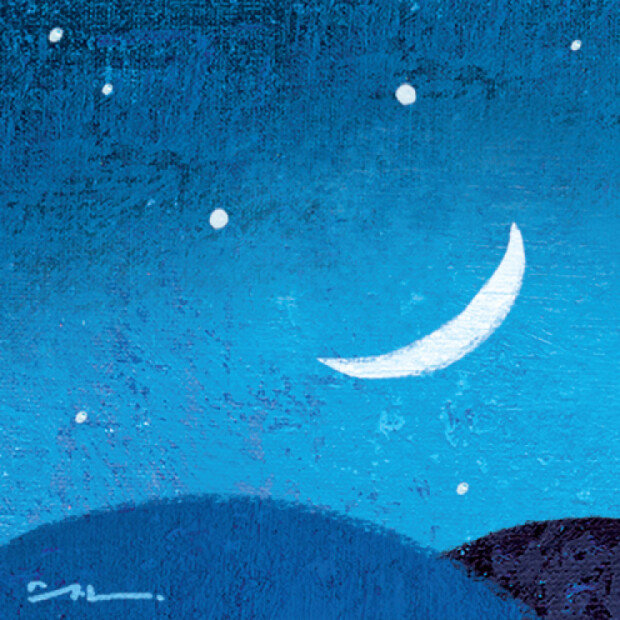Dream of a crescent moon
Dream of a crescent moon
Posted June. 03, 2022 07:40,
Updated June. 03, 2022 07:40

Midang Seo Jeong-joo’s ‘Dongcheon (Winter Sky)’ comes to mind when a crescent moon appears in the poetry. “I bring the handsome eyebrows of my love and wash them under the thousand nightly dreams/ before placing them on the sky to grow/ Even a menacing bird flying over the coldest winter skies/ fears and swerves by.”
Midang saw a crisp aura and pure naivete unrivaled, exuding from the crescent moon washed spotless with the dreams dreamt for thousand nights. Even a fearsome flying creature staggers at its presence before flying by. For the poet, the crescent moon hanging from the winter sky was the subject for awe and wonder.
Although it pales in comparison with respect or symbolism associated with the absolute being (love) illustrated by the crescent moon in ‘Winter Sky,’ this poem is not worlds apart as it acknowledges the power secretly held the crescent moon. Despite being less than a half moon, the infinite possibilities of the crescent moon shine through from where it was ‘hanging from the winter sky.’ The commanding admonition to ‘not underestimate a crescent moon in the shape of eye brows,’ originates in its confidence that, soon, it will light up the whole world.
Interestingly, the poet's name was described as the 'son' of Mr. Mu, indicating that the author is a little child. A legend has it that this poem was written by a seven-year-old boy fathered by Mr. Mu, and King Hyeonjong in the Tang Dynasty had the boy write the poem on the spot. The beaming light of the moon and what it holds inside in the eyes of a child must have consoled and comforted many souls of Confucian scholars who were determined to set the world on fire someday, regardless of their current frail and humble state.







